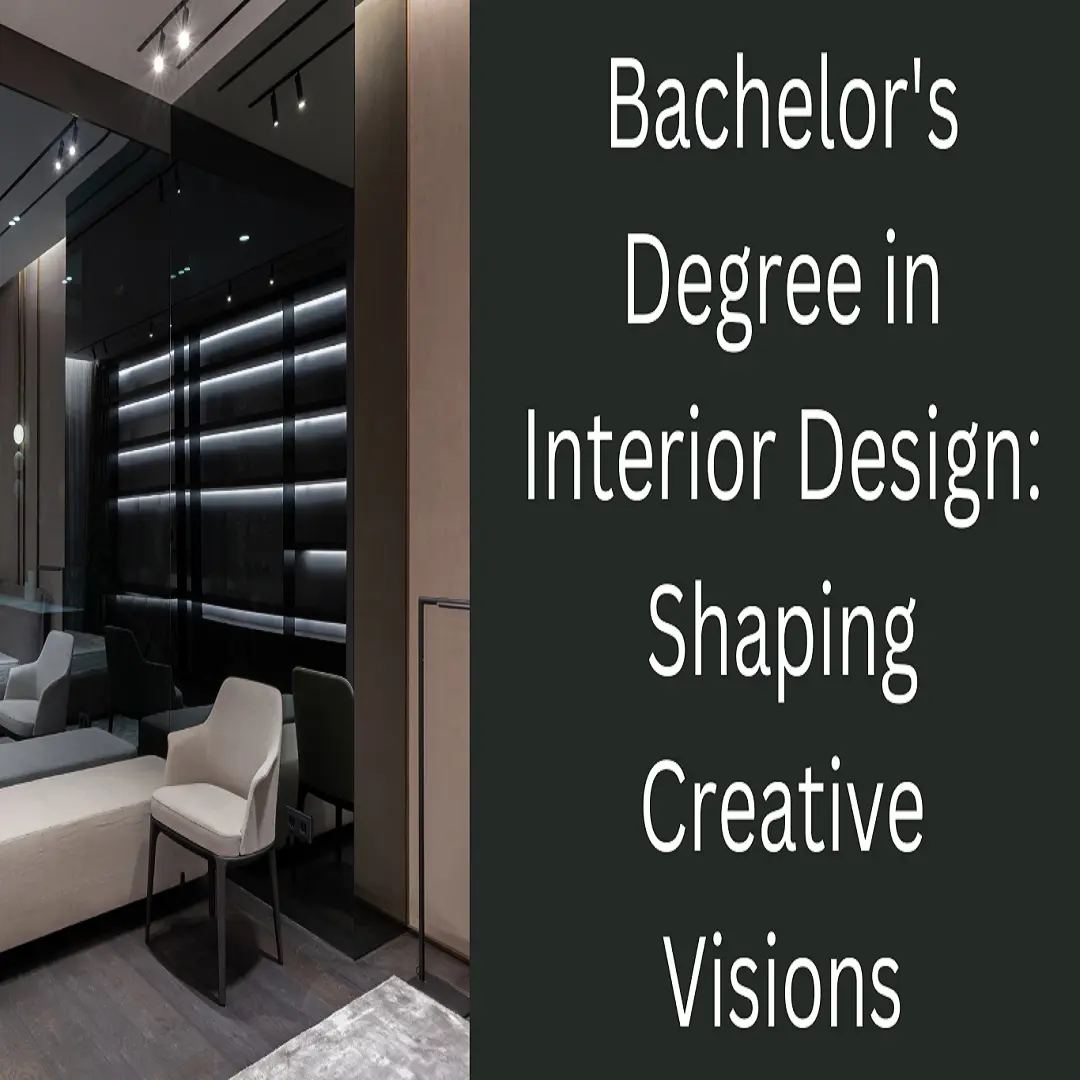
Bachelor’s Degree in Interior Design: Shaping Creative Visions
In the ever-evolving world of design, the field of interior design stands as a testament to the harmonious blend of aesthetics and functionality. For those with a passion for transforming spaces into captivating environments, pursuing a Bachelor’s Degree in Interior Design is not just a pathway to a career but a journey of self-discovery and creative expression.
Unveiling the Essence of Interior Design
Interior design goes beyond mere decoration; it is a holistic approach to creating spaces that enhance the quality of life and reflect the personalities of the inhabitants. A Bachelor’s Degree in Interior Design serves as the foundational stepping stone for individuals looking to delve into the nuances of this dynamic field. It equips students with a comprehensive understanding of design principles, spatial arrangements, and the utilization of various elements to craft visually stunning and functional interiors.
The Curriculum: Nurturing Creativity and Technical Expertise
One of the hallmarks of a reputable interior design program is its curriculum, which seamlessly weaves together creativity and technical proficiency. Students are exposed to a diverse range of subjects, including color theory, architectural drafting, furniture design, and the latest trends in sustainable design. The curriculum often incorporates hands-on projects and internships, providing students with real-world experience and a chance to apply theoretical knowledge to practical situations.
The Intersection of Technology and Design
In today’s digital age, technology plays a pivotal role in the field of interior design. Bachelor’s programs often integrate courses on computer-aided design (CAD) software, enabling students to create detailed and precise plans. This technological prowess not only enhances the efficiency of the design process but also prepares graduates to adapt to the rapidly changing landscape of the industry.
Cultivating a Design Identity
One of the most exciting aspects of pursuing a Bachelor’s Degree in Interior Design is the opportunity to explore and develop a personal design identity. Through studio courses and collaborative projects, students refine their unique style, whether it be minimalist, eclectic, or environmentally conscious. The curriculum encourages experimentation, fostering a sense of innovation and adaptability that is crucial in the ever-evolving world of design.
Beyond the Classroom: Networking and Professional Development
A Bachelor’s Degree in Interior Design is not just about acquiring knowledge within the four walls of a classroom. Students are exposed to industry professionals through guest lectures, workshops, and site visits. These interactions provide invaluable insights into the practical aspects of the profession and create networking opportunities that can open doors to internships and job placements.
The Future of Interior Design: A Global Perspective
As design transcends borders, a Bachelor’s Degree in Interior Design offers a global perspective. Students gain exposure to diverse cultural influences and international design trends, preparing them to work on projects with a wide range of clients and collaborators. This global outlook not only broadens their horizons but also enhances their ability to create spaces that resonate with people from different backgrounds.
Conclusion: Crafting Careers, Shaping Futures
A Bachelor’s Degree in Interior Design is more than an academic pursuit; it is a transformative journey that nurtures creativity, hones technical skills, and instills a passion for shaping spaces. As graduates step into the professional realm, they bring with them not only a degree but a unique vision that has been cultivated and refined through years of dedicated study.
For those who aspire to blend artistry with functionality, a Bachelor’s Degree in Interior Design is the key to unlocking a world where imagination knows no bounds. It is a journey that goes beyond the confines of a classroom, shaping creative visions and laying the foundation for a fulfilling and impactful career in the ever-evolving field of interior design.
FAQ:
1. What skills will I develop during a Bachelor’s in Interior Design?
- Answer: The program hones skills such as spatial planning, color theory, furniture design, and proficiency in design software.
2. How does technology play a role in interior design education?
- Answer: Technology is integrated through courses on computer-aided design (CAD), preparing students for the tech-driven aspects of the industry.
3. Can I specialize in a particular style of interior design during the program?
- Answer: Yes, the curriculum encourages experimentation, allowing students to refine their unique design identity, be it minimalist, eclectic, or environmentally conscious.
4. What career opportunities open up with a Bachelor’s Degree in Interior Design?
- Answer: Graduates can pursue careers as interior designers, consultants, or work in industries related to hospitality, real estate, and sustainable design.
5. How does the program prepare students for the global design landscape?
- Answer: The program offers a global perspective, exposing students to diverse cultural influences and international design trends, preparing them for a career with a broad, cross-cultural outlook.



